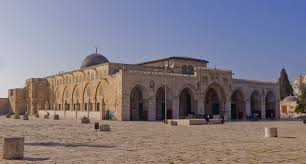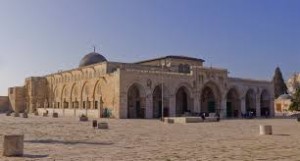WAFA
The Turkish Foreign Ministry and the kingdom of Morocco Sunday strongly condemned the Israeli police attack against al-Aqsa mosque compound in Jerusalem for the second consecutive day.
Clashes renewed on Monday morning after Israeli police stormed al-Aqsa Mosque compound in Jerusalem for the second consecutive day, where they attacked Palestinians with rubber-coated steel bullets and teargas as well as physically assaulted many others, including journalists, elderly, and women. Injuries, arrests and many suffocation cases among worshippers were reported.
The Turkish ministry, in statement, stressed that Israel should fulfill its obligation to ensure the freedom of worship in East Jerusalem, which is still under its occupation.
It called on the Israeli side to ‘immediately terminate these illegal practices aiming at the status and sanctity of the mosque,’ which it stressed is ‘a clear violations of the freedom of worship.’
In the meantime, president Mahmoud Abbas received a telephone call from Turkish president, Recep Tayyip Erdoğan, where they discussed the latest Israeli attacks against al-Aqsa mosque. Erdoğan further reaffirmed his countries’ full support to the Palestinian people.
Meanwhile, the kingdom of Morocco, in a press statement, slammed the Israeli attack on the mosque as ‘a provocation of the feelings of Arabs and Muslims across the world.’
It considered the Israeli attack on the mosque a blatant violation of international law and relevant international legitimacy resolutions on the status of holy sites in the occupied Palestinian Territory (oPT).
Morrow stressed the need for the international community to provide protection for the Palestinian people and compel Israel to refrain from its ‘systematic policy’ that aims to change the religious and historic character of the city of Jerusalem.
It reiterated its inalienable position in support of the Palestinian people in their struggle to establish their own independent state, with Jerusalem as its capital. it further affirmed the need for Israel to withdraw from the Palestinian land it occupied in 1967, as stipulated in the resolutions of the international legitimacy and the Arab Peace Initiative.








